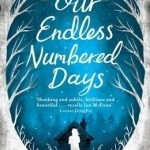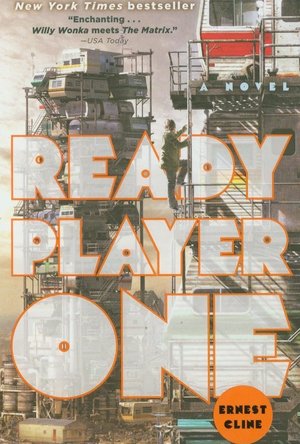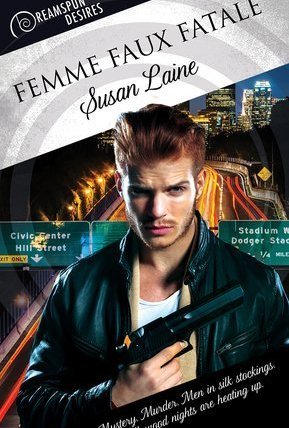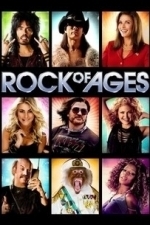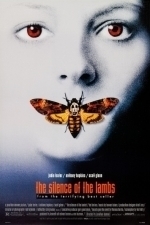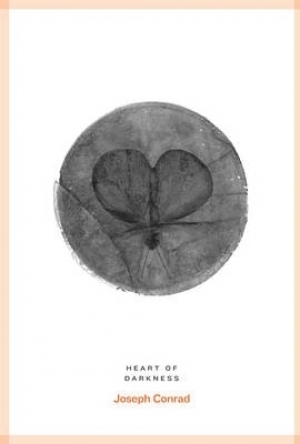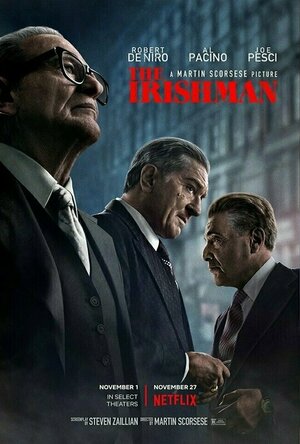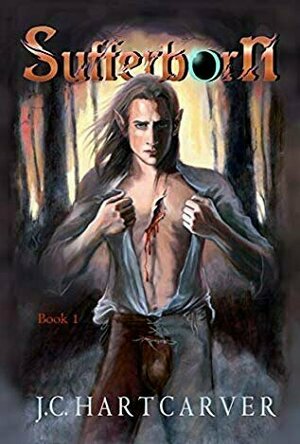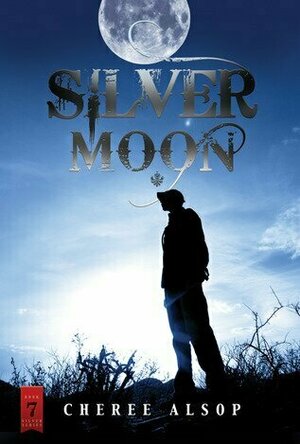Search
Search results
Goddess in the Stacks (553 KP) rated Our Endless Numbered Days in Books
Sep 26, 2018
I don't like unreliable narrators. I didn't realize, at first, that Peggy was one. Even though she mentions at the start of the book that a doctor said she had Korsakoff's syndrome - meaning malnutrition has messed with her memories - I assumed that it was just because her experiences were so unbelievable that the doctor thought she'd made things up. I also don't like unreliable narrators because the author obviously knows what truly happened. Leaving the reader in the dark about it seems rude.
Peggy's narration does seem childlike, often. While at the beginning of the book, that can be excused because she is eight years old, by the end she is seventeen, yet still talking about things with a child's understanding. I thought that was the effect of Korsakoff's syndrome, not that she was entirely making some things up.
In our endless numbered days, Peggy is effectively kidnapped by her father when she is eight, and taken to some place deep in the German forest. She spends the next nine years alone in the forest with him, trapping squirrels, gathering roots and berries, and growing simple crops in a small vegetable patch. He tells her, repeatedly, making her repeat it back to him, that the rest of the world was destroyed in a massive storm. They are the last two people alive in their small, sheltered valley. She doesn't question it until she sees a man in their forest, and that eventually leads her to find civilization again. The book is told in two timelines, flashing back and forth from her memories of her time in the forest, and the present where she's attempting to re-acclimate to London.
I'm not really sure what to believe; Peggy's memory or what her mother thinks happened. There are just enough oddities to make either story plausible. I think I prefer Peggy's version. But that's the trouble with unreliable narrators; there's no way to actually know. I don't like ending a book frustrated. Books should make you feel things, yes, but frustration is an odd emotion to aim for.
This book is odd.
You can find all my reviews at http://goddessinthestacks.com
Peggy's narration does seem childlike, often. While at the beginning of the book, that can be excused because she is eight years old, by the end she is seventeen, yet still talking about things with a child's understanding. I thought that was the effect of Korsakoff's syndrome, not that she was entirely making some things up.
In our endless numbered days, Peggy is effectively kidnapped by her father when she is eight, and taken to some place deep in the German forest. She spends the next nine years alone in the forest with him, trapping squirrels, gathering roots and berries, and growing simple crops in a small vegetable patch. He tells her, repeatedly, making her repeat it back to him, that the rest of the world was destroyed in a massive storm. They are the last two people alive in their small, sheltered valley. She doesn't question it until she sees a man in their forest, and that eventually leads her to find civilization again. The book is told in two timelines, flashing back and forth from her memories of her time in the forest, and the present where she's attempting to re-acclimate to London.
I'm not really sure what to believe; Peggy's memory or what her mother thinks happened. There are just enough oddities to make either story plausible. I think I prefer Peggy's version. But that's the trouble with unreliable narrators; there's no way to actually know. I don't like ending a book frustrated. Books should make you feel things, yes, but frustration is an odd emotion to aim for.
This book is odd.
You can find all my reviews at http://goddessinthestacks.com
Ivana A. | Diary of Difference (1171 KP) rated Ready Player One in Books
Oct 26, 2018
"Everyone my age remembers where they were and what they were doing when they first heard about the contest.’’
We are in the year 2045, where while Earth is deserted and almost destroyed, people don’t realise because they are too busy living in a virtual world - the Oasis!
The Oasis is a place where you can create an avatar for free, you can level up, you go to a school and you work inside the Oasis. This virtual world is filled with references from the 1980s. Cities are built in such a way, video games and books and movies still go on.
When the famous creator of the Oasis, James Halliday, dies, it turns out that there is a contest, and the person that will manage to find the ''Easter egg'' would inherit ownership of the Oasis.
We see the story from the point of view of the young Wade, that calls himself Parzival in the Oasis. He is in love with everything from the 1980’s, you name it - video games, pop culture, movies, shows, books. He is also amazed with Halliday’s work and life.
When five years from James Halliday’s death pass, people seem to have forgotten about the contest, and that’s when Parzival’s courage and knowledge will help him find the first key that unlocks the first of the three gates for the contest, putting him on the top of the scoreboard, and after five years, people start talking about Haliday’s ‘’egg’’ again.
Making friends along the way, and maybe finding the love of his life, Parzival faces millions of challenges, adventures, dangerous, funny and adorable moments. This is a book that will reveal a whole new world for you, and make you love Parzival while you follow his adventure into winning the contest.
With time running out, danger surrounding from all sides, and suddenly finding the ‘’egg’’ becoming a life or death game, Parzival and his friends have no choice but to win this contest. But will they make it, with the IOI Corporation behind their backs, following them both in the real and in the virtual world, endangering their lives?
We are in the year 2045, where while Earth is deserted and almost destroyed, people don’t realise because they are too busy living in a virtual world - the Oasis!
The Oasis is a place where you can create an avatar for free, you can level up, you go to a school and you work inside the Oasis. This virtual world is filled with references from the 1980s. Cities are built in such a way, video games and books and movies still go on.
When the famous creator of the Oasis, James Halliday, dies, it turns out that there is a contest, and the person that will manage to find the ''Easter egg'' would inherit ownership of the Oasis.
We see the story from the point of view of the young Wade, that calls himself Parzival in the Oasis. He is in love with everything from the 1980’s, you name it - video games, pop culture, movies, shows, books. He is also amazed with Halliday’s work and life.
When five years from James Halliday’s death pass, people seem to have forgotten about the contest, and that’s when Parzival’s courage and knowledge will help him find the first key that unlocks the first of the three gates for the contest, putting him on the top of the scoreboard, and after five years, people start talking about Haliday’s ‘’egg’’ again.
Making friends along the way, and maybe finding the love of his life, Parzival faces millions of challenges, adventures, dangerous, funny and adorable moments. This is a book that will reveal a whole new world for you, and make you love Parzival while you follow his adventure into winning the contest.
With time running out, danger surrounding from all sides, and suddenly finding the ‘’egg’’ becoming a life or death game, Parzival and his friends have no choice but to win this contest. But will they make it, with the IOI Corporation behind their backs, following them both in the real and in the virtual world, endangering their lives?
Debbiereadsbook (1656 KP) rated Femme Faux Fatale (Dreamspun Desires #70) in Books
Nov 30, 2018
really rather enjoyed this
Independent reviewer for Divine Magazine, I was gifted my copy of this book.
Cain is hired by Ms Astor to find her husband, along with a Rodin statuette. But things don't add up to Cain, and he visits the club she works at to talk to her some more. Lily Lavender is on stage, and she pushes all kinds of buttons that Cain never knew he needed pushing. Riley, the man behind Lily, has a similar reaction to Cain. But Riley is keeping secrets, secrets that have gotten two people killed and Cain needs to know, if they are to get out of this alive.
I really rather enjoyed this!
It's got instant and powerful attraction, it's got steam and passion, it's got a nutty woman, it's got so many levels of secrets! It's deadly too.
Told from both Cain and Riley's point of view, in the third, so we get each and every reaction from both men. Reactions to each other, to the situation around them, to Riley's cross dressing and to Cain very unexpected reaction to that.
Loved Cain's reaction to Riley's cross dressing. It's clear Riley has been treated badly in the past because of that, but Cain is like, AND??? It's part of who Riley is, and Cain just takes it as it is, as Riley is. Cain does, admittedly, rather like Riley in his ladies knickers and stockings, so that helped!
There is a rather long winded conversation between Riley and Cain about pulp fiction and noir films (I think!) bit I got lost with that, mostly because I have no clue what they were talking about, so I glanced over that bit!
I did like the twist as to what was really in the statuettes, and where that led the plot, and just what Ms Astor had, rather that what she THOUGHT she had.
Not quite a one sitting read, but I did stay til after midnight to finish it, when I had a 6am get up!
I've read one other by Ms Laine, I'd like to read some more. She has a way of grabbing you and pulling you in.
4 solid stars
**same worded review will appear elsewhere**
Cain is hired by Ms Astor to find her husband, along with a Rodin statuette. But things don't add up to Cain, and he visits the club she works at to talk to her some more. Lily Lavender is on stage, and she pushes all kinds of buttons that Cain never knew he needed pushing. Riley, the man behind Lily, has a similar reaction to Cain. But Riley is keeping secrets, secrets that have gotten two people killed and Cain needs to know, if they are to get out of this alive.
I really rather enjoyed this!
It's got instant and powerful attraction, it's got steam and passion, it's got a nutty woman, it's got so many levels of secrets! It's deadly too.
Told from both Cain and Riley's point of view, in the third, so we get each and every reaction from both men. Reactions to each other, to the situation around them, to Riley's cross dressing and to Cain very unexpected reaction to that.
Loved Cain's reaction to Riley's cross dressing. It's clear Riley has been treated badly in the past because of that, but Cain is like, AND??? It's part of who Riley is, and Cain just takes it as it is, as Riley is. Cain does, admittedly, rather like Riley in his ladies knickers and stockings, so that helped!
There is a rather long winded conversation between Riley and Cain about pulp fiction and noir films (I think!) bit I got lost with that, mostly because I have no clue what they were talking about, so I glanced over that bit!
I did like the twist as to what was really in the statuettes, and where that led the plot, and just what Ms Astor had, rather that what she THOUGHT she had.
Not quite a one sitting read, but I did stay til after midnight to finish it, when I had a 6am get up!
I've read one other by Ms Laine, I'd like to read some more. She has a way of grabbing you and pulling you in.
4 solid stars
**same worded review will appear elsewhere**
BookwormMama14 (18 KP) rated Through Waters Deep (Waves of Freedom, #1) in Books
Jan 2, 2019
Tensions run high as a saboteur begins to wreck havoc at the Boston Naval Yard. America is on the brink of entering the second World War and there are those who will stop at nothing to make sure the nation stays out of it.
Mary Stirling is content with her job as a secretary at the Boston Naval Yard, so long as she can stay out of the spotlight. Mary is determined to remain in the shadows and keep her pride suppressed. On her journey, she learns that using the talents and gifts that God has given her, is not a sin. And it brings glory to the One who gave her those gifts. The last thing Mary expected was Ensign Jim Avery, a childhood friend now assigned to the USS Atwood. As they investigate the strange goings on at the Naval Yard, they become increasingly attached to one another. But will they ever get to tell each other how they feel? Or will they be separated forever?
First of all, I am completely in love with the cover of this book! I admit that I am a sucker for a good cover. And I would have to rate this as one of my all time favorites. Watch the photo shoot for the cover here. I could not stop reading this book. I was hooked from page one! There is so much going on in the story line that there is never a dull moment. It was interesting to watch Mary and Jim's relationship grow. There were a few times that I got very upset (you'll know what I'm talking about when you get there), but Sarah did an excellent job of bringing it all together in the end. The history within these pages is incredible. Although the author did take some creative license, she explains it in her notes at the end. Overall an excellent read and one I will be sharing with my friends! Through Waters Deep is the beginning of Sarah Sundin's third series, but the first book of hers that I have read. I look forward to reading the rest of her books!
I received a free copy of Through Waters Deep from Revell in exchange for my honest review.
Mary Stirling is content with her job as a secretary at the Boston Naval Yard, so long as she can stay out of the spotlight. Mary is determined to remain in the shadows and keep her pride suppressed. On her journey, she learns that using the talents and gifts that God has given her, is not a sin. And it brings glory to the One who gave her those gifts. The last thing Mary expected was Ensign Jim Avery, a childhood friend now assigned to the USS Atwood. As they investigate the strange goings on at the Naval Yard, they become increasingly attached to one another. But will they ever get to tell each other how they feel? Or will they be separated forever?
First of all, I am completely in love with the cover of this book! I admit that I am a sucker for a good cover. And I would have to rate this as one of my all time favorites. Watch the photo shoot for the cover here. I could not stop reading this book. I was hooked from page one! There is so much going on in the story line that there is never a dull moment. It was interesting to watch Mary and Jim's relationship grow. There were a few times that I got very upset (you'll know what I'm talking about when you get there), but Sarah did an excellent job of bringing it all together in the end. The history within these pages is incredible. Although the author did take some creative license, she explains it in her notes at the end. Overall an excellent read and one I will be sharing with my friends! Through Waters Deep is the beginning of Sarah Sundin's third series, but the first book of hers that I have read. I look forward to reading the rest of her books!
I received a free copy of Through Waters Deep from Revell in exchange for my honest review.
After-all-this-time? (11 KP) rated Rock of Ages (2012) in Movies
Jan 6, 2019
Brilliant soundtrack. Great for a singalong. (2 more)
Most of the characters were performed well by the actors and actresses.
A pretty entertaining story.
Tom Cruise. Really not a good fit for the part of Stacy Jaxx. Mostly because of his vocals. (2 more)
Confused scene jumping. Blink and it's somewhere else.
Very stereotyoical boy meets girl plot.
Remember the tale of Dick Whittington, where he travels to London to find his fortune? Trade fortune for fame, add in a cheesy on/off/on again romance with a misunderstanding storyline, and a great singalong soundtrack, and you have Rock of Ages.
It comes across very much as live action Disney for grown ups. The plotline is flimsy, and with more holes than a pair of fishnet tights, but due to its sheer entertainment factor, that doesn't seem important, really.
The soundtrack is great, and if you're into 80's rock then you'll definitely find yourself singing along, and with the tunes stuck in your head for a long time afterwards. The majority of the cast provide great performances (we're not talking Oscar-worthy, but definitely do a great job), although Russell Brand's Brummy accent is a little cringeworthy, it and their singing is great. All but one. Sadly, the absolute weak link in the film is one of the biggest names- Tom Cruise.
The character of Stacy Jaxx needs to be edgy, brash, troubled, arrogant and, ultimately, a huge womaniser. He also needs to have a hard hitting, powerful rock singing voice. Sadly, Cruise doesn't really provide any of this adequately enough. His acting seems 'uncomfortable'- he was definitely out of his comfort zone, and his singing voice just does not cut it. Very unbelievable as the character he's supposed to be portraying. It's a huge shame, because it really does mess up the whole film. The whole film has the potential to be brilliant, but the makers were just short off the mark.
Overall, I did enjoy it, and yes I would watch it again. It's just not great, unfortunately. I imagine the stage version is much better
It comes across very much as live action Disney for grown ups. The plotline is flimsy, and with more holes than a pair of fishnet tights, but due to its sheer entertainment factor, that doesn't seem important, really.
The soundtrack is great, and if you're into 80's rock then you'll definitely find yourself singing along, and with the tunes stuck in your head for a long time afterwards. The majority of the cast provide great performances (we're not talking Oscar-worthy, but definitely do a great job), although Russell Brand's Brummy accent is a little cringeworthy, it and their singing is great. All but one. Sadly, the absolute weak link in the film is one of the biggest names- Tom Cruise.
The character of Stacy Jaxx needs to be edgy, brash, troubled, arrogant and, ultimately, a huge womaniser. He also needs to have a hard hitting, powerful rock singing voice. Sadly, Cruise doesn't really provide any of this adequately enough. His acting seems 'uncomfortable'- he was definitely out of his comfort zone, and his singing voice just does not cut it. Very unbelievable as the character he's supposed to be portraying. It's a huge shame, because it really does mess up the whole film. The whole film has the potential to be brilliant, but the makers were just short off the mark.
Overall, I did enjoy it, and yes I would watch it again. It's just not great, unfortunately. I imagine the stage version is much better
Elli H Burton (1288 KP) rated The Silence of the Lambs (1991) in Movies
Nov 7, 2019
The acting is 100% (2 more)
The story is fantastic
The way it is shot is genuinely awesome.
Have the lambs stopped screaming?
Okay so this is one of my favourite films because it just ticks every box.
Acting - Anthony Hopkins won an oscar for best actor because of this film. He is excellent, he is so creepy, elegant, scary, inviting, chilling, intriguing and he just oozes the sophistication, intelligence and depth of the character. He delivers his performance in this with a real passion. He is also so limited with what he can do physically (usually locked up) but he owns the set when the cameras are rolling.
Jodie Foster - I haven't seen her in anything else which I am actually embarrassed about because I loved her in this. No surprise, she won an oscar for best actress in this film. I genuinely feel like (towards the end mainly, as she has said in an interview that Anthony Hopkins did actually frighten her) she was terrified for her life. She could have been in the situation irl and i wouldn't be shocked. The character could have been played so many ways but Jodie played it perfectly. A clever, naive, strong, determined woman.
All other supporting actors were fantastic, such as Ted Levine as Buffalo Bill (my goodness he is so creepy he makes your skin crawl) and Scott Glenn as Jack Crawford (definitely feel the underlying tones of an unsavory character).
It is shot in such a way you dont see often, the talking to the camera shots, showing you things in Bills house like the pictures are all such subtle things but make it even more chilling. They also don't shy away with language(a word is said in this film atleast twice and it's so rare to hear on film) which sometimes, as not very nice this word is, the situation calls for it in this unnerving thriller, gross words and scenes need to be real to feel uneasy which you do in this.
Hats off to the wonderful Thomas Harris for writing such a gripping, interesting story that we were fortunate enough to see made to this magnificent film.
Acting - Anthony Hopkins won an oscar for best actor because of this film. He is excellent, he is so creepy, elegant, scary, inviting, chilling, intriguing and he just oozes the sophistication, intelligence and depth of the character. He delivers his performance in this with a real passion. He is also so limited with what he can do physically (usually locked up) but he owns the set when the cameras are rolling.
Jodie Foster - I haven't seen her in anything else which I am actually embarrassed about because I loved her in this. No surprise, she won an oscar for best actress in this film. I genuinely feel like (towards the end mainly, as she has said in an interview that Anthony Hopkins did actually frighten her) she was terrified for her life. She could have been in the situation irl and i wouldn't be shocked. The character could have been played so many ways but Jodie played it perfectly. A clever, naive, strong, determined woman.
All other supporting actors were fantastic, such as Ted Levine as Buffalo Bill (my goodness he is so creepy he makes your skin crawl) and Scott Glenn as Jack Crawford (definitely feel the underlying tones of an unsavory character).
It is shot in such a way you dont see often, the talking to the camera shots, showing you things in Bills house like the pictures are all such subtle things but make it even more chilling. They also don't shy away with language(a word is said in this film atleast twice and it's so rare to hear on film) which sometimes, as not very nice this word is, the situation calls for it in this unnerving thriller, gross words and scenes need to be real to feel uneasy which you do in this.
Hats off to the wonderful Thomas Harris for writing such a gripping, interesting story that we were fortunate enough to see made to this magnificent film.
Phil Leader (619 KP) rated Heart of Darkness in Books
Nov 14, 2019
This book is undoubtedly most famous today for being the story behind the film Apocalypse Now and really comparisons between the two are inevitable.
The story itself is a story within a story, being related by a sailor on a ship while it is waiting at anchor in the Thames estuary. To pass the time he tells his crewmates of the time he spent several years previously working for a trading consortium in Africa, piloting a boat to the trading station up river to pick up ivory.
His manager is wary of the man who runs the trading station - Mr Kurtz. He believes he is ultimately after his job. It is clear that Kurtz is a very talismanic and polarising figure, some hating him and others talking about him as if he is some sort of deity. The narrator cannot wait to meet him but suffers many delays (including having to repair his boat) before he can set off up river. By the time he does the weight of expectation and anticipation has created his own expectations of what he will find. But what will the reality be?
This is s slim volume, and to be honest a slim plot. But the brilliance is in the telling of the story. Conrad carefully evokes the feeling of the oppressive heat and frustration of not being able to head up the river. But once underway the jungle closes in and is claustrophobic and full of mystery and hidden dangers. The attraction is not in the tale itself but in the way it is told.
By the time the trading post is reached the expectations of Kurtz have been raised in the reader as much as in the narrator and events unfold in an unexpected direction.
As with Apocalypse Now the journey up the river is everything and the eventual destination looms until it consumes the characters and dictates their actions.
A word of caution about the language used. The 'N' word is frequently used and sometimes in a derogatory manner so if this offends it is best to avoid.
Overall, a diverting read and a masterclass in using descriptions to set the tone for the reader. But probably not essential.
The story itself is a story within a story, being related by a sailor on a ship while it is waiting at anchor in the Thames estuary. To pass the time he tells his crewmates of the time he spent several years previously working for a trading consortium in Africa, piloting a boat to the trading station up river to pick up ivory.
His manager is wary of the man who runs the trading station - Mr Kurtz. He believes he is ultimately after his job. It is clear that Kurtz is a very talismanic and polarising figure, some hating him and others talking about him as if he is some sort of deity. The narrator cannot wait to meet him but suffers many delays (including having to repair his boat) before he can set off up river. By the time he does the weight of expectation and anticipation has created his own expectations of what he will find. But what will the reality be?
This is s slim volume, and to be honest a slim plot. But the brilliance is in the telling of the story. Conrad carefully evokes the feeling of the oppressive heat and frustration of not being able to head up the river. But once underway the jungle closes in and is claustrophobic and full of mystery and hidden dangers. The attraction is not in the tale itself but in the way it is told.
By the time the trading post is reached the expectations of Kurtz have been raised in the reader as much as in the narrator and events unfold in an unexpected direction.
As with Apocalypse Now the journey up the river is everything and the eventual destination looms until it consumes the characters and dictates their actions.
A word of caution about the language used. The 'N' word is frequently used and sometimes in a derogatory manner so if this offends it is best to avoid.
Overall, a diverting read and a masterclass in using descriptions to set the tone for the reader. But probably not essential.
Nick Beaty (70 KP) rated The Irishman (2019) in Movies
Jan 26, 2020 (Updated Jan 26, 2020)
De Niro is the best he has been in a long time...
First off any movie that has Robert De Niro, Al Pacino, Joe Pesci and Martin Scorsese connected to it has me from the get go.
De Niro is the best he has been in a long time as mob hitman Frank Sheeran, Joe Pesci is excellent in a much more reserved role as Russell Bufalino and Al Pacino is superb as the loud and brash Jimmy Hoffa. All the buzz is around the three lead actors, as all have been nominated for Oscars. Although for me Stephen Graham more than holds his own alongside these legends, as the cocky and destructive 'Tony Pro'. Some of the best scenes are with him and Pacino not seeing eye to eye on various occasions.
Personally I felt it wasn't as Scorsese as I expected, it didn't have the same narrative or feel as say Goodfellas or Casino, I'm not saying that is a bad thing as it's still a very good movie, it's just not on their level in my opinion.
There has been a lot of talk about the 3 hour 29 minutes running time. I personally don't understand all the fuss, as there have been many classic, award winning movies even longer than this. Gone with the Wind took home the Oscar in 1940 and ran a whopping 3h 58m. Ben Hur won best picture in 1960 at 3h 32m and more recently Titanic in 1998 was slightly less at 3h 14m.
I also feel the need to mention a couple of scenes that felt very reminiscent of one of my favourite movies Pulp Fiction. The opening sequence when the words 'I heard you paint houses' flash on the screen felt very Tarantino and the whole car scene with Jesse Plemons & Louis Cancelmi talking about the fish, was very Jule's & Vincent like. I'm not sure if that is just me or whether other people agree.
Overall I get that it is a long movie and people have very busy lives but if you get the chance you really should watch it, just to see these big screen legends at work and doing what they do best.
De Niro is the best he has been in a long time as mob hitman Frank Sheeran, Joe Pesci is excellent in a much more reserved role as Russell Bufalino and Al Pacino is superb as the loud and brash Jimmy Hoffa. All the buzz is around the three lead actors, as all have been nominated for Oscars. Although for me Stephen Graham more than holds his own alongside these legends, as the cocky and destructive 'Tony Pro'. Some of the best scenes are with him and Pacino not seeing eye to eye on various occasions.
Personally I felt it wasn't as Scorsese as I expected, it didn't have the same narrative or feel as say Goodfellas or Casino, I'm not saying that is a bad thing as it's still a very good movie, it's just not on their level in my opinion.
There has been a lot of talk about the 3 hour 29 minutes running time. I personally don't understand all the fuss, as there have been many classic, award winning movies even longer than this. Gone with the Wind took home the Oscar in 1940 and ran a whopping 3h 58m. Ben Hur won best picture in 1960 at 3h 32m and more recently Titanic in 1998 was slightly less at 3h 14m.
I also feel the need to mention a couple of scenes that felt very reminiscent of one of my favourite movies Pulp Fiction. The opening sequence when the words 'I heard you paint houses' flash on the screen felt very Tarantino and the whole car scene with Jesse Plemons & Louis Cancelmi talking about the fish, was very Jule's & Vincent like. I'm not sure if that is just me or whether other people agree.
Overall I get that it is a long movie and people have very busy lives but if you get the chance you really should watch it, just to see these big screen legends at work and doing what they do best.
Merissa (13770 KP) rated Sufferborn in Books
Jan 27, 2020
Sufferborn is the story of elves and humans, how they live, and what happens when their worlds overlap. We start off in the past where Orinleah has just given birth and Daghahen is found by his brother. We learn Orinleah gives the boy a name that is banned from most of the tribes, Dorhen, meaning 'stranger'. Apparently, it means his life will not be long but be very arduous. Why she names him this isn't exactly clear as she seems so happy about it.
The pacing of this book is overall very slow. There are moments when it picks up but then it slows down again. This is good in the majority of the cases as there is always a lot going on, so it gives you time to grasp the situation as well as learning more about the characters. I would say that personally I would have found chapter headings to be helpful, just so I could find out who was talking and when, but that's probably just me.
And there are a LOT of characters too! The main ones end up being Daghahen, Dorhen, and Kalea, but trust me when I say there is a whole caboodle of characters there that will draw your attention. In fact, even in the last few chapters, you are introduced to new characters to take into book two with you.
With the slow pace and the amount of characters, it comes as no surprise this is a long book, typical of Fantasy. I wouldn't call it a Fantasy Romance as I felt the romance between Dorhen and Kalea actually wasn't that important. I mean, obviously it is or Kalea wouldn't have gone looking for him, but on the whole, there is so much more to the story than "just" romance. I would call it Dark Fantasy as there is plenty of violence and the threat of rape and/or rape scenes.
It ends on a cliffhanger so fair warning and I haven't found anything online to say when the next book is available. If Dark Fantasy ticks your box then I would recommend it.
The pacing of this book is overall very slow. There are moments when it picks up but then it slows down again. This is good in the majority of the cases as there is always a lot going on, so it gives you time to grasp the situation as well as learning more about the characters. I would say that personally I would have found chapter headings to be helpful, just so I could find out who was talking and when, but that's probably just me.
And there are a LOT of characters too! The main ones end up being Daghahen, Dorhen, and Kalea, but trust me when I say there is a whole caboodle of characters there that will draw your attention. In fact, even in the last few chapters, you are introduced to new characters to take into book two with you.
With the slow pace and the amount of characters, it comes as no surprise this is a long book, typical of Fantasy. I wouldn't call it a Fantasy Romance as I felt the romance between Dorhen and Kalea actually wasn't that important. I mean, obviously it is or Kalea wouldn't have gone looking for him, but on the whole, there is so much more to the story than "just" romance. I would call it Dark Fantasy as there is plenty of violence and the threat of rape and/or rape scenes.
It ends on a cliffhanger so fair warning and I haven't found anything online to say when the next book is available. If Dark Fantasy ticks your box then I would recommend it.
Merissa (13770 KP) rated Silver Moon (The Silver #7) in Books
Mar 19, 2020
Silver Moon is the final book in the Silver series, and let me tell you, this book has ripped my heart out, thrown it on the floor, stamped all over it, picked it back up again, only to do it all again, before finally leaving me needing a new series!!!
Things come to a head for Jaze and his pack and he has to make decisions no young adult should have to. I really won't say too much as I don't want to give out any spoilers. All I will say is be careful! Your heart will racing, your mouth dry, as you try to figure out just how he gets out of certain situations. And also, for the last quarter of the book (at least) I was sobbing as I read. Not just crying, oh no. We're talking great big f'ugly crying!!!
There's so much I want to say but I can't without giving away spoilers! I want to talk about certain characters and what they went through and how it made me feel. I want to talk about that spectacular ending that just about killed me. I want to talk about the aftermath which made me cry again. But I can't.
What I will say is this series is simply outstanding. I have loved all of the books in this series for one reason or another. They all fit together perfectly. The writing is unsurpassed. The pacing is smooth. The characters are all lifelike and behave just as you think they should, before they turn around and surprise the living daylights out of you.
This book killed me. I love and hate it so it will be kept and re-read, again and again. So sad to see this series end but it does lead me nicely onto the next series, which now I just HAVE to read.
* A copy of this book was provided to me with no requirements for a review. I voluntarily read this book, and the comments here are my honest opinion. *
Merissa
Archaeolibrarian - I Dig Good Books!
Things come to a head for Jaze and his pack and he has to make decisions no young adult should have to. I really won't say too much as I don't want to give out any spoilers. All I will say is be careful! Your heart will racing, your mouth dry, as you try to figure out just how he gets out of certain situations. And also, for the last quarter of the book (at least) I was sobbing as I read. Not just crying, oh no. We're talking great big f'ugly crying!!!
There's so much I want to say but I can't without giving away spoilers! I want to talk about certain characters and what they went through and how it made me feel. I want to talk about that spectacular ending that just about killed me. I want to talk about the aftermath which made me cry again. But I can't.
What I will say is this series is simply outstanding. I have loved all of the books in this series for one reason or another. They all fit together perfectly. The writing is unsurpassed. The pacing is smooth. The characters are all lifelike and behave just as you think they should, before they turn around and surprise the living daylights out of you.
This book killed me. I love and hate it so it will be kept and re-read, again and again. So sad to see this series end but it does lead me nicely onto the next series, which now I just HAVE to read.
* A copy of this book was provided to me with no requirements for a review. I voluntarily read this book, and the comments here are my honest opinion. *
Merissa
Archaeolibrarian - I Dig Good Books!
